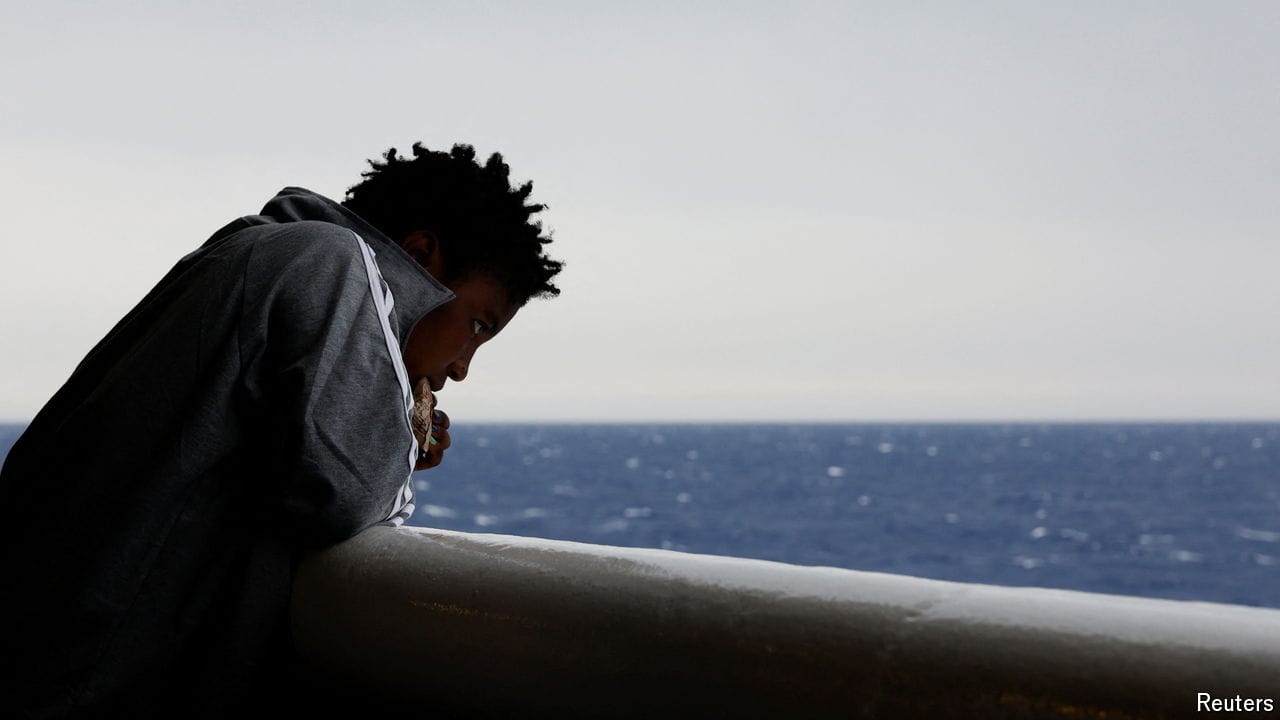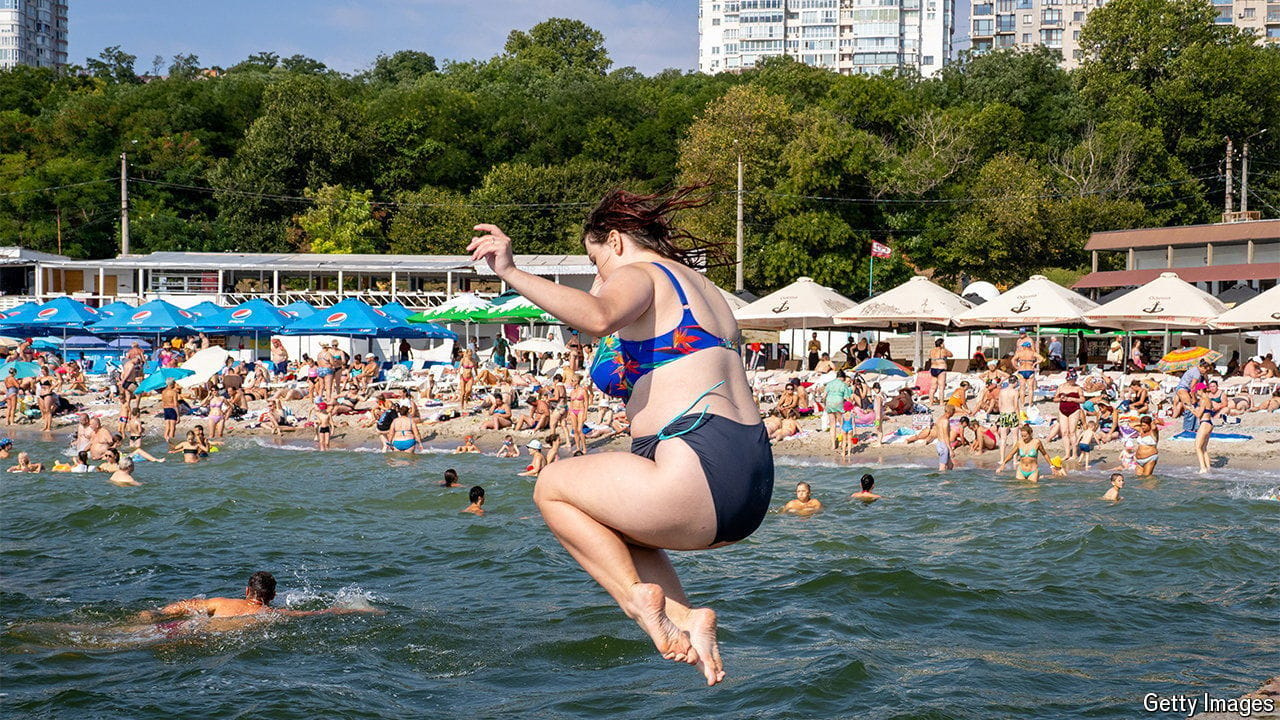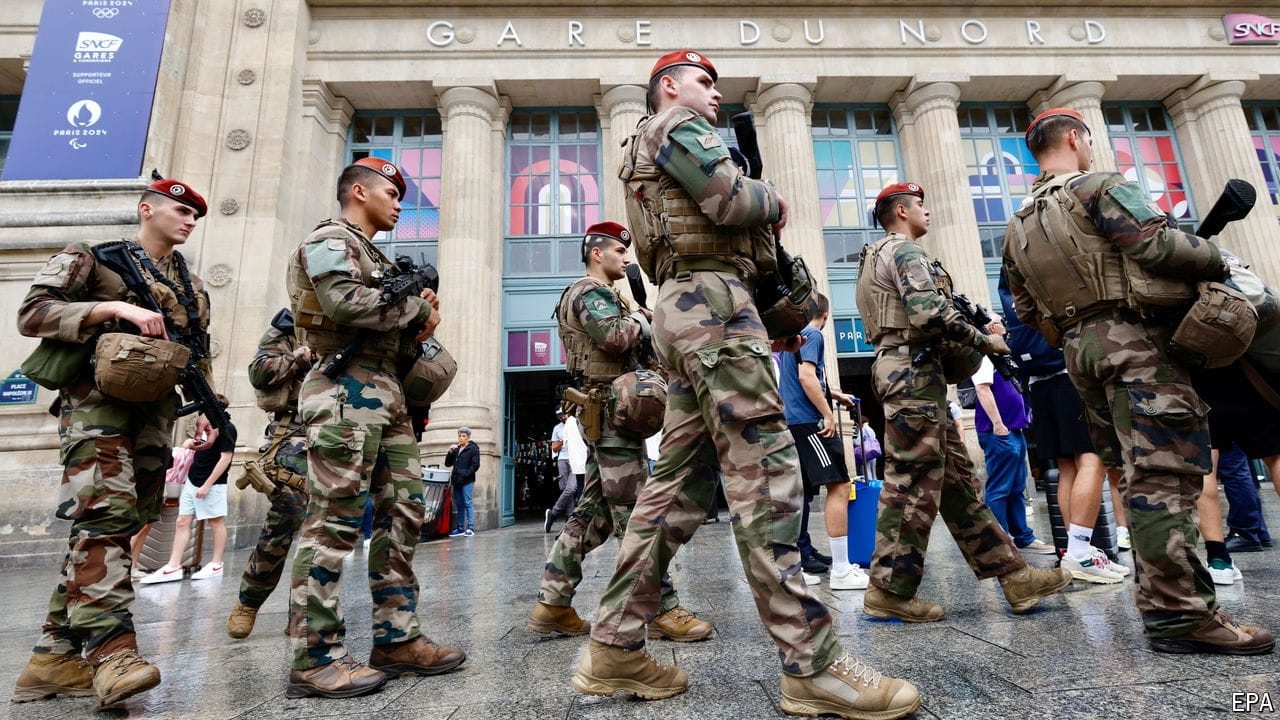The German chancellor’s awkward meeting with China’s boss
It is time for Xi Jinping to accept that Germany isn’t America’s puppet

An official Chinese read-out said the summit meeting in Beijing that ended on April 16th reflected the strong ties that bind the world’s second- and third-largest economies. A morning of talks with Xi Jinping, China’s president, punctuated by a comradely stroll in the garden and ending in a cordial lunch, seemed to have marked a friendly climax to the three-day visit to China by Olaf Scholz, Germany’s chancellor.
But not all is as rosy as spring. For a start, the German home audience was denied a live view of their chancellor’s frolic in Beijing because ZDF, a German public broadcaster, could not get Chinese press accreditation from the host country’s notoriously awkward bureaucrats. But behind that quibble lurked much bigger troubles. Just before the trip to China—his second since he became chancellor in 2021, and one for which he has attracted a fair amount of criticism from within Europe—Mr Scholz told an interviewer that although an American-style “decoupling” of the German economy from China is a bad idea, “de-risking” would be wise. “In Germany, the peacemaking effect of economic contacts was certainly overemphasised,” said the former mayor of Hamburg. “Nobody has that illusion today.”
Explore more
This article appeared in the Europe section of the print edition under the headline “An awkward meeting”
Europe April 20th 2024
- Germany is flunking the education test
- Ukraine is digging in as the Kremlin steps up its offensive
- How a conservative conference morphed into a crisis of liberalism
- The German chancellor’s awkward meeting with China’s boss
- How Russia targeted France and radicalised Emmanuel Macron
- Ukraine is ignoring US warnings to end drone operations inside Russia
More from Europe

Will a new “pact” of ten laws help Europe ease its migrant woes?
It will require an extraordinary number of institutions to work together

Amid the bombs, Ukrainians rediscover the beach
Odessa gives itself permission to tan again

Who was behind the arson attacks on railways before the Olympics?
With thousands stranded, suspicion falls on Russia or Iran
Italian right-wingers have renamed Milan’s airport after Silvio Berlusconi
A finger in the eye of those who detested the late populist leader
European countries are banding together on missile defence
The Ukraine war shows how dangerously few interceptors they have
Peter Magyar is reinvigorating Hungary’s struggling opposition
Attacking Viktor Orban’s corruption wins votes for a political newcomer
